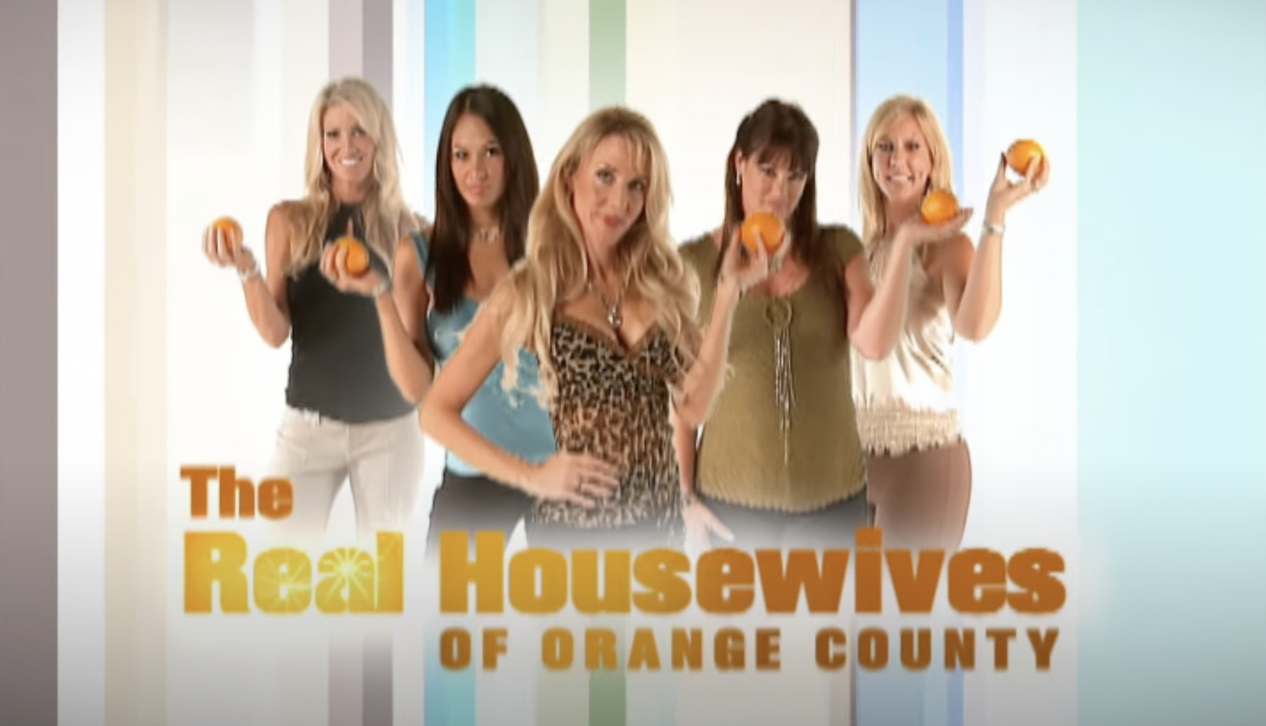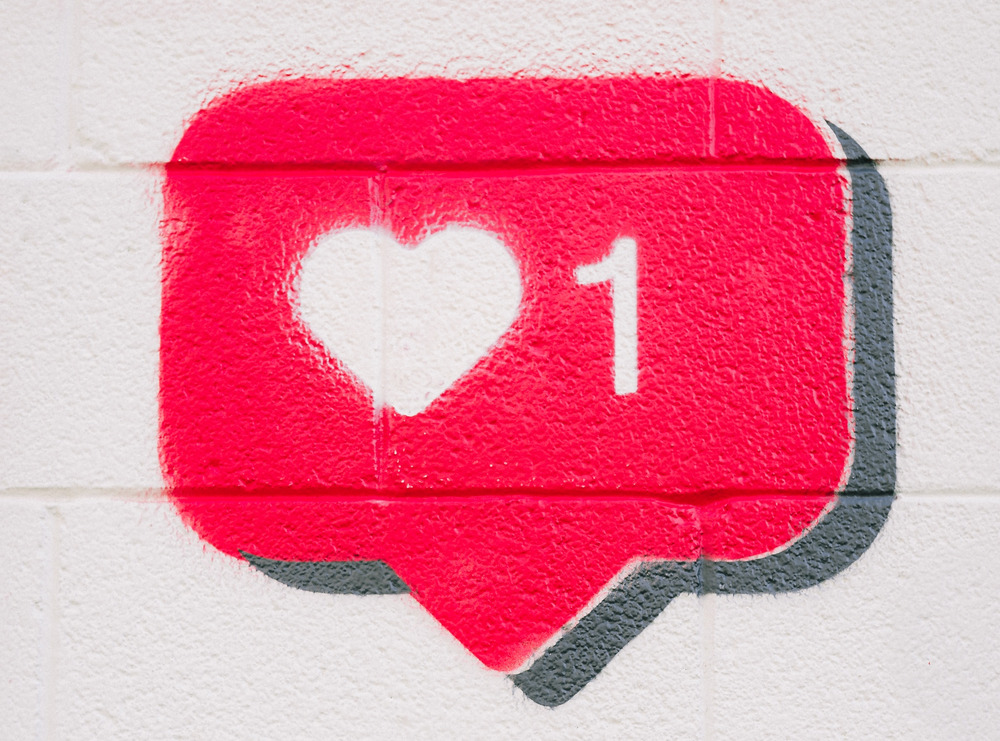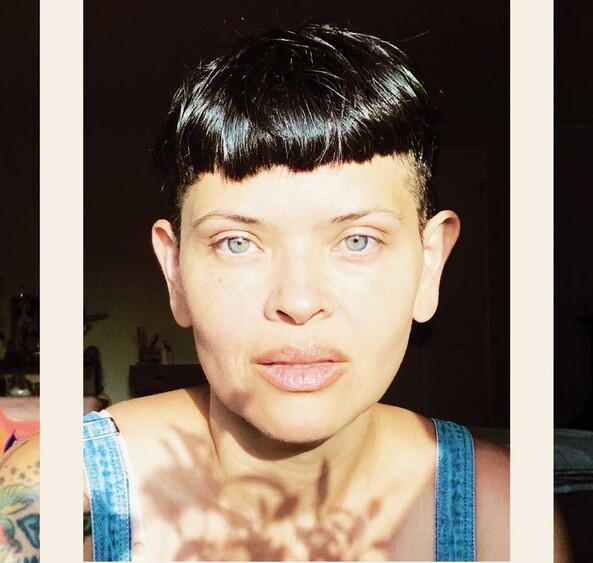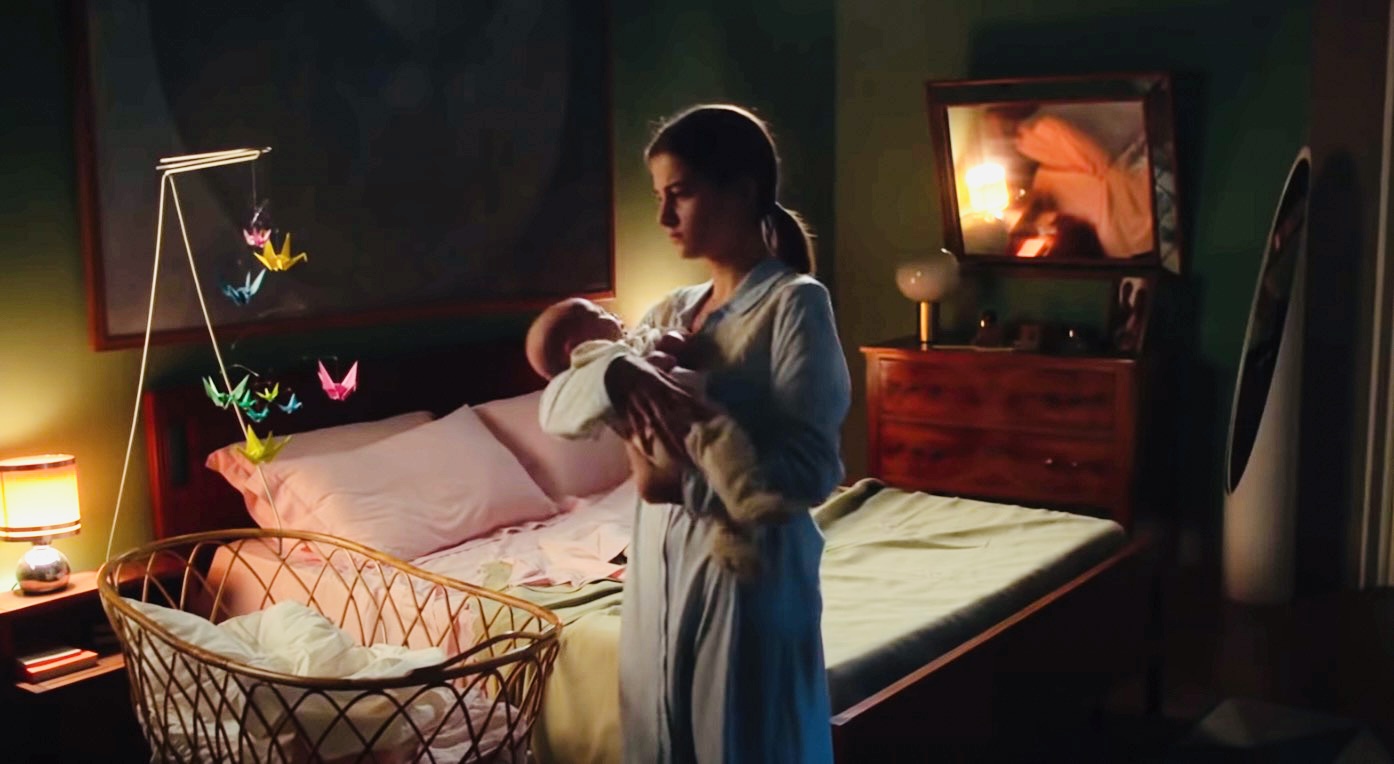Books & Culture
What the Real Housewives Franchise Tells Us About the Triumphs and Pitfalls of Modern Feminism
Rewatching Bravo's landmark reality TV show felt like reliving my own life

The WGA had been on strike for months, with SAG-AFTRA joining the picket line fray just days earlier, when Bethenny Frankel, former star of Real Housewives of New York City, took to Instagram to say her piece: reality TV stars needed a union. It wasn’t fair that networks aired reruns of their shows for years or could use their faces in promotional materials for forever, all without paying the people who owned those faces one cent in residuals.
Soon, Bethenny upped the ante: She was suing The Real Housewives’s network, Bravo, and parent company, NBC, in a class-action suit alleging “depraved mistreatment” of reality TV participants. “[T]he sordid and dark underbelly of NBC’s widely consumed reality TV universe has remained under wraps for far too long,” Bethenny’s attorneys wrote. “Please be advised that the day of reckoning has arrived.”
The news grabbed my attention immediately. Regardless of Bethenny’s motives—which were quickly questioned in my social media feeds—if somebody wants to start a union and blast the executives who messed with my WGA friends, I’m here for it. But I was also interested for selfish reasons. I was working on a reality TV project myself, one centering Bethenny’s television alma mater, The Real Housewives.
Put another way, I’m 34 years old, which means The Real Housewives has been on television for half my life.
I’ve been re-watching old seasons of the franchise, trying to understand what this show—often treated as a trashy guilty pleasure—means for the more feminist, equitable society I want to live in. This undertaking involves dissecting women in 11 different cities over 17 years because, yes, that’s how big Bravo’s franchise is. Put another way, I’m 34 years old, which means The Real Housewives has been on television for half my life.
Re-watching old episodes, the overlap in our lifespans couldn’t be more obvious. It didn’t feel like viewing a show; it felt like reliving my life, remembering the world that raised us both.
Over the last 17 years, The Real Housewives and I made ourselves small, viciously slut shamed, and un-ironically Girlbossed; we mourned past pains and wore pussy hats so we could be #WomenSupportingWomen, but we also lost sight of what support should look like and who deserved supporting. We made paltry attempts at intersectional feminism that ended in backlash, costing us allies—and rights. Throughout all this, society’s expectations and definitions of women kept changing—continue changing—but one truth remains: We might often categorize The Real Housewives as frivolous pop culture, but it has always reflected how the world exists for real women. Two things can be true.
Then came Bethenny with her call for a union, safer workplaces, and management accountability, all things I want for women everywhere in that more equitable world I dream of. When Bethenny introduced those ideas as Real Housewives demands, I wanted her to succeed because I want women to succeed, and I see The Real Housewives and regular women’s fates linked.
So yes, I’m paying attention to Bethenny Frankel. I don’t want her call for change to go the way of our dream for a female president, of a lasting MeToo movement, of a woman’s right to define themselves and control their bodies—all things we thought we’d achieve in the last 17 years, only to come up short.
Speaking of those years, how did everything go so wrong? If my Real Housewives re-watch has taught me anything, it’s that the answer was always there. We just needed to pay more attention to what we were watching.
The Real Housewives debuted following five Orange County women in 2006 when I was 16 years old. It was a time when fashionable meant wearing skin-tight, low-rise jeans, pants so traumatically unflattering, we invented an insult for how they deformed our bodies—the muffin top—and everyone publicly counted the days until the Olsen twins, Lindsay Lohan, and other starlets turned 18 and could all be legally slept with.
It meant wearing suggestive clothes and a don’t-take-me-too-seriously demeanor.
Our ideas about what it meant to be a woman were so small that when Bravo announced its new show following five “glamorous… sexy, sophisticated” housewives, viewers knew exactly what that meant: Straight, skinny, white, cis women. It didn’t yet mean screaming, partying, or throwing wine, stereotypes with which the show would later become synonymous. It meant wearing suggestive clothes and a don’t-take-me-too-seriously demeanor, all while performing the labor of the homemaker archetype with an easy, agreeable smile. Those first season Orange County housewives nailed this formula—except Jo.
Jo is a 24-year-old engaged to an older, wealthy man named Slade. And Jo, it should be said, is not white; she’s Peruvian-American, though we can likely thank ABC’s fictional Desperate Housewives for The Real Housewives’s decision to cast one token Latinx woman.
When we meet Jo, she’s acing the acceptable type of womanhood. Low-rise jeans look great on her. She’s recently quit her job, intending to stay home, to be Slade’s perfect housewife. The problem? She hates cleaning! She’s bored! In the 1960s, women were prescribed valium for this. In 2006, we put them on TV and watched their relationships implode.
Slade wants Jo to be happy caring for his house, picking up his dry cleaning, and parenting the kids from his first marriage. But Jo wants to go out! Jo wants to work! Jo does not want to clean! So, they fight. Slade laments Jo’s disinterest in becoming that housewife he’s always wanted, and she cries because she loves this creep. She wishes she was more like the woman he dreams of, too.
Enter Kimberly, Jo’s housewife fairy godmother. Kimberly, like Jo, used to work, until it was time to quit her job to raise babies. Kimberly, also like Jo, struggled with this identity shift at first. But then, Kimberly found new hobbies: Day drinking at country clubs, getting a boob job, buying lingerie.
The worst part of this regressive Cinderella story is realizing Kimberly seems genuinely happy. She’s not only accepted the narrow parameters of womanhood in 2006—she’s embraced them, just like my friends and I embraced low-rise jeans. We never considered changing our pants or the roles society thrust upon us. We shrunk our bodies to fit the jeans, and we shrunk the women to make them ideal wives.
The Real Housewives scored one of its first water-cooler moments in 2009, courtesy of the first season of The Real Housewives of New Jersey. This cast had no token Latinx woman—only skinny white ladies with dark skin via spray tan. Needless to say, our ideas about how to be a woman were still very straight, very white, and very small. And maybe it was because I was getting older, but it felt like the punishments for acting out had gotten steeper. Which brings me to a popular late-aughts punishment: Slut shaming.
Laurel’s face crumpled as she realized what everyone really thought of her.
Exhibit A: Laurel. My senior year of high school, my class voted Laurel “biggest mouth,” because once in English class she made a list of all the guys she’d hooked up with, and “class whore” wasn’t allowed. When an oblivious teacher announced, “This year’s biggest mouth is… Laurel,” during Senior Awards Night, Laurel’s face crumpled as she realized what everyone really thought of her. I thought she was going to cry. Girls who were her friends—some of whom had voted for her—tried to comfort her, while boys who’d gladly accepted blowjobs before also voting for her snickered.
Exhibit B: Danielle. Danielle is New Jersey’s single wife who likes wearing skimpy clothes and sharing that she’s been engaged 19 times. She does not fit the mold of what a proper housewife, née woman, should be.
The rumors begin: most involve her sex life—specifically that she sleeps with married men, something the other housewives frequently repeat without much proof. During the season, the women also find a book and police records that seem to very much prove Danielle was arrested in the ’80s for kidnapping and extortion, and for troubling involvement with the Columbian drug cartel. But why shame a woman in 2009 for her cartel-kidnapper connections when you could nail her for a real crime, like enjoying sex? In the season finale, Danielle and married housewife Teresa have a fight that ends with Teresa flipping a table and calling Danielle “prostitution whore,” a moment still seen as one of series’s most iconic of all time.
No one chastises Teresa for making a scene at dinner—never mind for weaponizing sexuality, shaming sex workers, or confusing cheating rumors with sex work. Those latter infractions were the era’s social norms. But calling attention to oneself, making a scene, that could get a woman in trouble. At 18, when the show first aired, I attributed Teresa’s lack of punishment to the fact that she, unlike Danielle (and Laurel) had a husband—a man—who vouched for her behavior. In fact, he called it “sexy.” I thought loud female behavior didn’t matter if guys still wanted to sleep with you and support you.
But that teenage explanation was a shallow understanding of a deeper truth: Teresa didn’t flip the table because she was angry about how the world controlled or shamed women. She flipped it to put a woman who didn’t conform to traditional expectations in her place. (Which was also why Laurel’s friends voted for her, even if they didn’t know that themselves.) Any woman who stands up for a world that holds women down always will find allies to protect her. It’s the ones making moves against that world who end up out of luck.
With the 2010s came changes for women. Not systemic changes. But we did make several superficial changes. And we certainly called it progress. Actually, we called the changes Leaning In, and from leaning in, a new female archetype was born: The Girlboss.
The Real Housewives’s viewers Leaned In by embracing louder, Teresa-esque wives who weren’t afraid to start fights, throw drinks, or even launch a prosthetic leg. We didn’t care if these women had a man’s permission—as long as they were mostly still white, conventionally attractive, and managing the houses and kids (labor that continuously went unacknowledged). And these new, louder housewives Leaned In, too: They capitalized on fame from the show and started businesses. The women sold everything from clothing to cannoli, sex toys to hair care, butt workouts to booze. They were women; hear them roar—then buy one of their products.
Outside of Real Housewives-land, I was a college student, then a recently graduated twentysomething who embraced this Lean In-Girlboss mantle in full. It’s embarrassing now to admit, but I did. After years of being told to stay small and quiet, of understanding men should dictate when loud female behavior was OK, this new attitude felt good—or, as my friends and I suddenly loved to say: Empowering. And since we couldn’t put our names on products like the housewives, we Girlbossed by focusing on different things, like pants. First, we killed muffin tops by moving our jeans’ waistlines higher. Then we ditched jeans altogether for something infinitely more comfortable: Leggings. When the world told us leggings aren’t pants, we insisted they were. We channeled Orange County housewife Tamra, who in 2014 became a GIF after screaming, “THAT’S MY OPINION!” perfectly encapsulating the regrettable Girlboss attitude that having an opinion is the only requirement necessary to share it.
Plenty of people at the time knew these Lean In-Girlboss ideas were garbage.
Plenty of people at the time knew these Lean In-Girlboss ideas were garbage, particularly queer and trans writers and writers of color. They called it faux feminism. Rich people feminism. White people feminism. Because the opportunity for conventionally attractive, mostly white housewives on TV to make money isn’t a landmark moment for labor or gender equality; it’s capitalism with beauty gatekeeping thrown in. And what oppressive systems were we dismantling, exactly, by replacing skin-tight jeans with…skinnier, tighter leggings? (Leggings that, in 2013, Lululemon founder Chip Wilson proclaimed “just don’t work” for all bodies.) Critics dubbed the era’s pathetic attempts at feminism as society paying lip service to progress while making none at all. And they were exactly right, except for one thing: Not enough people who needed to hear this criticism—and yes, I’m talking about white women—were calling themselves feminists, anyway.
Most were in a period of I’m not feminist, but… a line I distinctly remember telling my college roommate in 2012 after one of our school’s star athletes allegedly sexually assaulted a female student and received little punishment. Not even Sophia Amoruso, the largely forgotten white woman who coined the term Girlboss, considered herself a feminist, telling Elle Magazine in 2014, “I don’t really like to use that word.”
But the deeper into the 2010s we went, the more many women’s relationship to the word changed. Maybe it was because one in five women were sexually assaulted in college—a new stat for the public in 2014, even though it seemed obvious to me and so many others who’d attended college in the 2010s. Maybe it was because of Beyoncé. Isn’t everything good that happens, on some level, related to Beyoncé? Or maybe it was because the more times society leaves you saying, I’m not a feminist, but…, the more opportunities you have to ask yourself, But why not? Which is to say: The 2010’s embrace of feminism—particularly for white women—took time. But once we arrived, the Girlboss’s rebrand from superficial symbol of vaguely empowered white woman in leggings to superficial symbol of a white feminist was swift.
And there’s no doubt she was a superficial symbol, because if this new Feminist Girlboss had any substance to her, then we would have addressed the important critiques about how class and race and wealth and other factors create uneven pains and obstacles for women.
But she didn’t. So we didn’t.
Worse, by the time masses of white women did start considering these critiques, we were approaching November of 2016, the moment we thought we had a fool-proof plan to solve them. As New York housewife Carole put it: “This is a historic election [because] … we showed the world that Americans will not tolerate division, exclusion, fear-mongering, sexist, and racist rhetoric.” Carole is reading from a pre-written speech, of course, one she never delivers. But it’s a speech that echoes what my fellow Girlbosses and I had been so sure was true: We were going to solve gender inequity by making a thin, blonde, white lady the first female president of the United States.
The 9th season of The Real Housewives of Atlanta filmed the summer before the 2016 election but aired mostly in its aftermath, premiering just two days before the election where the lady president did not save us.
The idea that America was cruel enough to elect him forced me to do some long-overdue white feminist Girlboss reflecting.
I was a 27-year-old who stayed up crying until 2 a.m. on election night, desperate to hear officials had found another 70,000 Democratic ballots in Michigan, Wisconsin, and Pennsylvania. I wasn’t so surprised the country couldn’t elect her, but the idea that America was cruel enough to elect him forced me to do some long-overdue white feminist Girlboss reflecting.
“Don’t blame me,” Atlanta housewife Kenya quips about our new president at one point. She’s joking, but not, because, Black women aren’t the reason we failed to make the thin, blonde, white lady president. As for white women, that’s another story, but this Atlanta season features an all-Black cast. (Atlanta is, in fact, the only city to feature any Black Housewives for the first decade the show is on television, apart from one woman on one season of the since-forgotten Real Housewives of D.C.) Still, the Atlanta wives had their own reflecting to do.
Phaedra sets the self-improvement tone early by making peace with Kenya—a woman she’d nicknamed Kenya Moore Whore two seasons prior—and declaring, “As women, it cannot be acceptable to call each other hos and bitches and prostitutes… We have to make a conscious effort to change.” Then the message explodes in her face at the end of the season.
But first, Shereé and Bob. We spend much of this season rooting for Shereé to get back with her ex, Bob, only to later learn that Bob previously abused her. This comes to light when Bob jokes(!) on a group vacation that maybe he “didn’t choke [Shereé] hard enough” years ago. In a confessional interview, Shereé says she didn’t want to cry because that would give a man power while ruining everyone else’s day. I know Shereé thinks she’s being the strong, feminist woman we were all supposed to be now, but in practice, that Strong WomanTM is just another way we teach all women to stay small and quiet, now under the guise of having power—and for Black women, this trope comes with bigger consequences.
Meanwhile, Porsha and Kandi are fighting. It starts when Kandi says Porsha hooked up with one of her exes, and escalates all season until Porsha says she heard Kandi wanted to drug and sleep with her. Which, yes, would constitute rape. Porsha accuses Kandi of wanting to rape her. Kandi vehemently denies it, while Porsha stands her ground, saying her source is sure. Then at the end of the season, Porsha’s source admits she made up that rape rumor after all. That source? One Miss Phaedra Parks: The woman who told us to make a conscious effort to be better.
Watching the women digest this news, I felt like I did on election night: Unprepared for how cruel we could be. It’s in that moment, though, that Phaedra’s message feels more necessary than ever. It is time for us to commit to changing.
The world had hurt us. Men had hurt us, women had hurt us, and we had hurt other people, other women. But we couldn’t go on like this. Something had to change.
Still, it’s hard to be better when you’re so angry: At the man who hurt you, the woman who lied about you, the people who voted for that new president (not to mention the ones who didn’t vote). I was 27 years old and had spent a lifetime trying to be the “right” kind of woman. Just when I thought I’d figured out how to be an empowered, feminist Girlboss, the country elected a man credibly accused of rape to become its next president. So yeah, I was angry. Every woman who’d been hurt by a patriarchal society was angry. Finally, we were ready to put our anger into action.
Support women. This was the decided way forward. Not Black lives matter, or trans women are women. Just, support women. #WomenSupportingWomen. Sure, some of us thought these other mantras were implied by our support women cheers, though if we’d looked at who was chanting with us, we might have known better. Alternatively, we could have watched The Real Housewives of New York City, noticed that a show taking place in one of the most diverse cities in the country included just one woman of color in 10 seasons, and no one who wasn’t straight, so maybe we needed to be more explicit about inclusion when trying to solve the problems of women. But we didn’t notice. We were busy being women supporting women.
In 2017, as I entered my late twenties, we marched in pussy hats, took down Harvey Weinstein, and shared our stories of MeToo, a movement I’d say maybe half of us knew was started by Tarana Burke, a Black woman, years earlier. We combined that work with more emotionally symbolic victories, like buying t-shirts proclaiming “The future is female,” “Nevertheless, she persisted,” and “Girls just want to have fun-damental rights.” The Merriam-Webster Dictionary made “feminism” its 2017 word of the year. Imagine, a word I’d personally shunned five years earlier now the word of the year.
At that moment, I thought we were going to do it. We were going to make life materially better for women. The winds of change were on our side.
We didn’t notice. We were busy being women supporting women.
In reality, everyone seemed to be on our side—a clear sign that our side had problems. “Support women,” after all, didn’t draw distinctions over what support looked like or who deserved supporting. So while I thought we were going to listen to the problems of women we’d long ignored and try to do something to fix them, not everyone agreed, including some women of the 10th season of The Real Housewives of New York City.
The season aired in 2018—a peak year for proclaiming support of women—which is probably why Ramona and future union matriarch Bethenny both race to accuse one another of not living up to the standard. It begins when Bethenny calls Ramona to tell her she’s being mean to other women (specifically, she’s being mean to Bethenny). But Ramona beats Bethenny to the punch, screaming from a New York City sidewalk, “You don’t support other women!” Ramona’s reasoning has nothing to do with Bethenny becoming rich off of her brand SkinnyGirl, a name that doesn’t at all support women. Instead, Ramona drops this bomb because Bethenny made fun of Ramona, gossiped about Carole, and wasn’t happy when fellow housewife Dorinda gifted her a human-sized nutcracker for Christmas.
At the risk of stating the obvious, one rich white lady’s right to be thanked for gifting another rich white lady a toy nutcracker is not what feminists meant when we said support women. None of the behavior Ramona mentions is because it doesn’t contribute to the systemic unfairness we wanted to stop—though, here’s a behavior that does: Voting for the accused rapist to be president, which Ramona almost certainly did.
No housewife mentions voting records when Ramona yells at Bethenny. Neither do viewers. Viewers turn the moment into a GIF and buy t-shirts with Ramona screaming “You don’t support other women!” Then in September of 2018, a few months after this fight and one week before my twenty-ninth birthday, we watch Dr. Christine Blasey Ford tell the world Brett Kavanaugh sexually assaulted her—receiving support Anita Hill could’ve only dreamed of. We are emotionally shattered when it doesn’t matter.
Toppling powerful predators is hard; it can’t happen every day.
Clearly, the support women mantra had been co-opted by bad actors—by Ramona and others. (A predictable outcome given white women’s aforementioned 2016 voting record.) But those of us who wanted systemic change needed to accept that our problems ran deeper. As 2018 became 2019, the marches and takedowns of men like Harvey Weinstein slowed. That’s not our fault—toppling powerful predators is hard; it can’t happen every day. But we could wear spunky feminist t-shirts whenever we wanted, and increasingly, it seemed like that was the only goal we consistently worked toward. It was as if we’d decided feminism was easy, gender equality one “This pussy grabs back,” t-shirt away.
But feminism isn’t something you wear or even proclaim. Feminism is paid maternity and paternity leave. Feminism is recognizing housekeeping and childcare as work. Feminism is a world that respects, protects, and grants the same opportunities to everyone, regardless of race, sexuality, and gender identity—and making that abundantly clear in the work you do. Feminism is work—massive work—that involves reconstructing our political and social systems. Pretending it’s easy won’t keep alleged sexual predators out of the White House or off the Supreme Court. It just put a shirt quoting AOC in my dresser. And ones quoting Ramona in the drawers of others.
There is only one way to make the world better for women: You have to make the world better for everyone. You have to care as much about violence against Black men and trans women as you do about violence against young white women—and recognize the latter is a lot less common. By 2020, society seemed ready to do that. Having failed in every other attempt at world-betterment, we finally understood the need for intersectional feminism, considering how class and race and wealth and other factors impact a woman’s experience in the world. (So, yes, broad swaths of women “discovered” in their early thirties the ideas queer and trans writers and writers of color had raised during the Girlboss era of my early twenties—ideas that weren’t new then, either.)
Our move toward intersectional feminism succeeded on one metric: We transformed the idea of a woman on The Real Housewives. Admittedly, we made little progress in queer inclusivity—17 years in, there’s two openly LGBTQIA+ housewives, despite legions of queer fans. The franchise has, however, made a serious commitment to casting non-white women on the show, including Garcelle, the first Black housewife on The Real Housewives of Beverly Hills. The problems came when the white women needed to be as serious in their commitment to the new wives.
The 11th season of The Real Housewives of Beverly Hills aired in 2021 and opened with Garcelle telling Kyle, a white housewife, why it matters that Kyle accused Garcelle of not donating to her charity after pledging to do so. “I don’t think you realize the effect it has on me as a Black woman,” Garcelle says. “There are stereotypes that people think we don’t pay for our rent, that we don’t tip.” Kyle later recounts this conversation to Sutton, another white housewife, and Crystal, Beverly Hills’s first Asian-American housewife. Crystal begins articulating the pain of experiencing racist stereotypes, until Sutton interjects to say this isn’t a race thing; everybody deals with stereotypes. And with that, the cracks in a white woman’s allyship come into view.
“Are you one of those people that [doesn’t] see color?” Crystal responds. “Tell me you’re that girl. [The one who says] I don’t see color.” Cue the dramatic music added in post-production. Cue Sutton tearfully declaring, “I really don’t see color. I don’t see race.”
“Race exists,” Crystal responds. “I’m proud of my race.” But Sutton and Kyle don’t hear her. “The word ‘racist,’ to me is like a virus, worse than COVID… To even get into this upsets me,” Sutton declares, to Kyle’s agreement. The women are defensive now, seeming more afraid of being labeled a racist than of engaging in racist behavior. Like too many white women before them, they want to correct the problem until it turns out they might be part of it.
Life was better before we had to think about how to be fairer to everyone.
Maybe The Real Housewives isn’t the best medium for informed discussions on race. “I feel like most people watch these shows for the escapism and to laugh at it? The race stuff is depressing and stressful,” one Reddit user wrote, echoing posts I’ve seen online. But inside these comments is more than a request for a venue change; it’s Sutton and Kyle’s desire to not have the conversation at all. And inside that refusal is an admission that intersectional feminism is too much work, that life was better before we had to think about how to be fairer to everyone.
But it’s no coincidence that the fall of Roe and disintegration of reproductive freedom coincides with the removal of accurate Black history from classrooms and the eraser of queer and trans rights across the country. When you don’t care about advancing all people forward, you put others’ rights and lives in jeopardy.
That was where my Real Housewives re-watch ended until Bethenny gave it an epilogue. By moving to create a union for The Real Housewives, she gave those women—yes, those rich, straight, and cis, but slightly less white women—a chance to win. Public support for labor unions, after all, is high. The popularity of the WAG and SAG-AFTRA strikes, both of which secured labor-rights wins, are testament to that. And if as The Real Housewives go, so go women; if as the rights of women go, so go the rights of every overlooked and underprotected person, then we should all want a Real Housewives union win. Yet every day, I’m more convinced it will turn out like all those other things we failed to achieve for the last 17 years.
Vanity Fair recently published an article about The Real Housewives’s behind-the-scenes. It contains some damning details, including #WomenSupportingWomen bad actor Ramona using racial slurs. But the most memorable moment to me came from Eboni, New York City’s first Black housewife. According to the article, “Presented with the idea that she might participate in Frankel’s organizing, [Eboni] said, ‘Fuck Bethenny Frankel. You think I’m going to let some white girl speak for me with my experience with a multibillion-dollar corporation?’” I’m not exactly trying to call out Bethenny’s intersectionality here, though the quote is telling. It also shows how much work is left to make life better. I’m still convinced The Real Housewives reflects how we treat actual women, but I understand that connection isn’t random: What society accepts from its least-respected pop culture is always a barometer for how we treat the least-respected people. To the extent The Real Housewives has let us down with its representations and treatment of women, and, frankly, anyone, it’s because society has let us down, too. I want to believe the world can be better. So I’ll keep watching and looking for answers. I’ll keep hoping one day that it will be.








